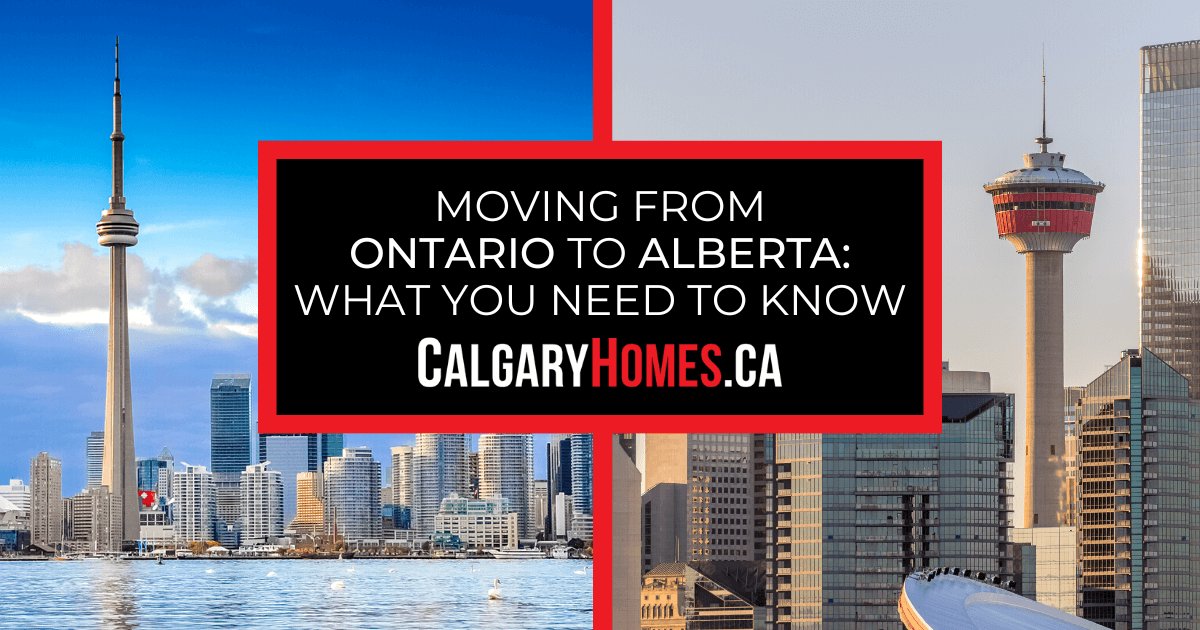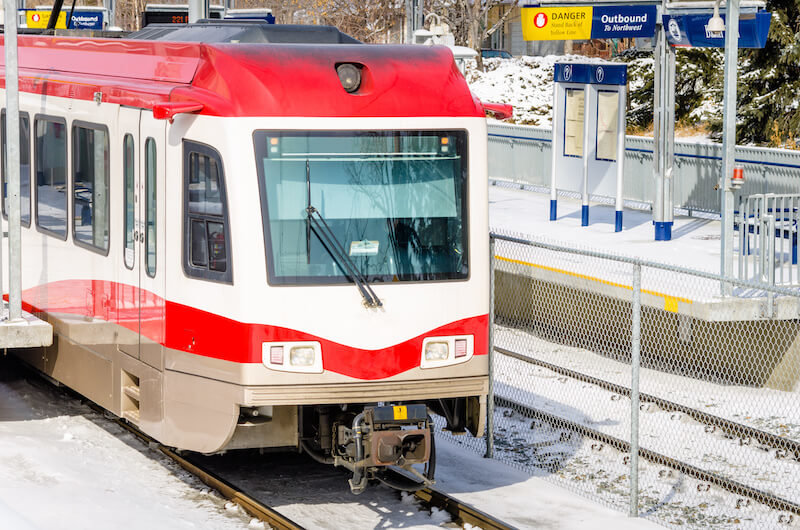Moving From Ontario to Alberta: 8 Things To Look Forward To
Posted by Justin Havre on Tuesday, March 28th, 2023 at 11:55am.

Two provinces and over 2,800 kilometres might separate Ontario and Alberta, but they're not much different regarding their economy, transportation, and top things to do. Despite that, the Ontario vs. Alberta conversation—often manifesting as a choice between living in Calgary or Toronto—sparks hot debate for those trying to decide where to move.
To make that decision, it's often best to explore all each locale offers. Through that lens, everyone can quickly see how living in each area would benefit them now and in the long run. Use this guide on moving from Ontario to Alberta to start that journey.
Ontario Economy vs. Alberta Economy
Alberta remains a leader in provincial growth, although Ontario is not far behind. In Alberta, professional, scientific, and technical services show the most growth. Oil and natural gas production and agricultural exports have also increased, helping add more jobs to the region than ever before.
Ontario's major drivers of economic growth are crude oil, natural gas, and wheat exports. Motor vehicle and parts shipments help bolster the economy as well, but that market has started to decline in recent months.
Cost of Living
Overall, it's more expensive to live in Ontario than in Alberta. Toronto, Ontario, has a cost of living index of 114, which is 14% higher than the national average. With an index of 93, the cost of living in Calgary, Alberta, is 7% lower than the average for the nation.
In Ontario, home prices are generally close to $1 million, but more affordable options are available. Food adds about $250 per person to the monthly bills. As for transportation, getting a bus pass is around $150 per month, while taxis charge up to $2 per kilometre.
Meanwhile, homes in Alberta are often $500,000 or less. Homebuyers can expect to find 1,000-square-foot condos for sale in Calgary listed from around $300,000. Groceries are around $275 per person each month. Public transportation is a little over $100 per month when buying the pass. Travelling by taxi typically costs $1.65 for each kilometre.
Job Market

Skilled Worker ranked Peterborough, Ontario, as the top city to find a job in Canada, with Guelph in third place. Not to be left behind, Edmonton, Alberta, lands in fourth, although other cities in the province don't appear anywhere else on the list.
In Toronto, the unemployment rate is only 6%, revealing the overall health of the local job market. The unemployment rate in Edmonton hovers around 8%, although this city is well-known for its lifelong career opportunities.
Overall, there are over 7.8 million people employed across Ontario. About 83% of those workers have full-time jobs. Occupations with the best outlook through the next five years include university professors, senior government managers, vet techs, educational counsellors, and community service workers.
In Alberta, nearly 2 million people are employed. Jobs may be more widely available in occupations like construction trades, graphic designers, bookkeepers, administrative assistants, and petroleum engineers.
Top Industries & Biggest Corporations
Ontario and Alberta have very different employment landscapes to consider. The top employers in Ontario are in the finance, electronics, and healthcare industries. Alberta's leading employers are in the health, oil and gas services, and telecommunications industries.
At 380,000 employees and counting, Ontario Health Insurance Plan employs the most people in Ontario. That company is followed by Onex, with 160,000 employees. TD Bank and the Royal Bank of Canada have over 85,000 employees each. Celestica rounds out the top five with 28,000 people working in their electronics company.
Like Ontario, Alberta's leading employer is also in the healthcare industry. Alberta Health Services employs over 109,000 people. Elsewhere, more than 59,000 workers work at Telus. Following that, Shaw Communications has 15,000 employees, and Suncor has 13,000 people working in their oil and gas services firm.
The economy in Calgary is growing, too. The GDP in Stampede City is expected to increase at a consistent rate of around 2.2%.
Ontario Commutes vs. Alberta Commutes
City planners, transportation officials, and other key players have made getting around in Ontario and Alberta easy. Residents can easily choose between driving their own car and taking public transportation to all their daily engagements.
Commute times are longer in Toronto, Ontario, adding up to 42 minutes on average each way. Commute times in Calgary average around 27 minutes. Public transportation takes longer than driving, but it also keeps residents from having to find and pay for parking.
Traffic Patterns and What to Expect During Rush Hour
All across Canada, commuting by car has declined, especially in Ontario and Alberta. Ontario's car commuters decreased by 20% in May 2021, leaving just over 3.8 million people on the road. In Alberta, the total number of car commuters decreased by nearly 14%.
If you're moving from Toronto to Calgary and spend a lot of time behind the wheel, you can expect a significant quality-of-life increase. Traffic in Toronto is far worse than in Calgary: commute times average more than 50% longer in Toronto, but the most significant difference may be during non-rush hour times. There are far fewer drivers on the roads in Calgary than in Toronto, so there's significantly less congestion throughout all hours of the day.
Despite the decrease in cars on the road, Ontario and Alberta residents are not keen on carpooling. Only 6% of people travelling to work and back complete their trip as passengers. Nearly twice as many people commute using public transportation instead.
Public Transportation

The robust public transportation systems in Ontario and Alberta give residents a convenient way to get to all their destinations. Each transit provider offers online schedules, easy ticket purchase options, and additional support that helps make every ride quick and convenient.
In Ontario, buses, streetcars, and subways all provide residents with quick transport from place to place. Regarding bus service, the Greater Toronto area uses GO Transit, which Metrolinx operates. Riders can buy single-ride tickets and day passes during the week, and weekend passes are offered.
Each city in Alberta has its transit system setup as well. Calgary Transit provides Calgary's public transportation options with various bus services, including light metro, bus rapid transit, and urban tramway service. Riders must buy a ticket, day pass, or monthly pass to get a ride to their target destination.
What to Do in Ontario vs. What to Do in Alberta
There's no doubt about it: Ontario and Alberta have tons of amazing things to do. A wide array of invigorating outdoor activities awaits year-round, plus the sports scene is fantastic. Even the nightlife leaves little to be desired, especially during the height of the tourist season. So, check out all the fun attractions and other things to decide between Ontario and Alberta.
Outdoor Activities
Canada has seemingly endless breathtaking parklands to explore—and Ontario and Alberta are no exception. Each province has its own charm, too, making them all worth experiencing at least once. For example, the best outdoor activities in Calgary are quite different from those in Toronto.
While visiting Ontario, it's always a blast to go kayaking down the Madawaska River, along Lake Superior, and in the waterways of Algonquin Provincial Park. The Niagara Escarpment is perfect for learning to rock climb, while the Georgian Bay is a top spot for scuba diving adventures. For those who love mountain biking, there are many trails to conquer, including Albion Hills, The Don Valley, and Kelso.
While in Alberta, hiking calls at Banff National Park, Elk Island National Park, and Peter Lougheed Provincial Park. At Banff, visitors can treat themselves to a glimpse of the irresistible glacier lakes and even dip their toes in the water. Horseshoe Canyon offers thrills and chills for whitewater rafting enthusiasts, while Summerland Leisure Park is the place to go for mini golf fun and camping adventures.
Sports
Sports enthusiasts can quench their thirst for lively competition while travelling anywhere in Alberta and Ontario. The local sports and recreational activity centres serve as the ideal place to go for hockey, basketball, and so much more. If you're moving to Calgary, you're probably aware that the Calgary Flames of the NHL play here, but the Edmonton Oilers are also in the province. Meanwhile, Ontario has the Toronto Maple Leafs and Ottawa Senators.
In Lethbridge, Alberta, residents often land at 1st Choice Savings Centre for Sport and Wellness to enjoy indoor rock climbing, swimming, and sports of all kinds. They have an on-site community sports stadium, open gym and indoor track, aquatic centre, ascent climbing centre, and fitness centre. Other popular sports centres in Alberta include Spruce Meadows, MacDonald Island Park, Eastlink Centre, University of Calgary Outdoor Centre, and Millenium Place.
Ontario has just as many sports complexes within its borders as well. At the Wayne Gretzky Sports Centre, visitors can play hockey, swim in the leisure pool, play sports in the gym, visit the fitness centre, and enjoy many other sports activities. Other activity centres in Ontario include Leon's Centre, Magna Centre, and Stoney Creek Recreation Centre.
Nightlife

When it's time for Ontario and Alberta residents to relax, they can always count on their local nightlife attractions. Each venue offers opportunities to sip tasty drinks, groove to the music, and meet a few friends.
The top nightclubs in Ontario are the Reservoir Lounge in Toronto, Ariius Nightclub in Windsor, and The Ranch in Barrie. Visiting the Cameron House in Toronto is the first stop on a music crawl to remember. As local musicians play live for the crowds, their tunes set the stage for a memorable night out on the town.
For an experience to remember, Alberta residents can seek out the nightlife in Calgary. Here, it's easy to find excellent clubs and bars with music pumping and good vibes flowing through the air. The top spots include Milk Tiger Lounge, Knoxville's Tavern, Proof, Twisted Element, and The Hifi Club.
Other Benefits of Moving to Alberta From Ontario
Alberta already has a lot of advantages over Ontario that make it a great place to live, but here are some additional benefits to to consider.
Significant Tax Advantages in Alberta
Living in Alberta provides several tax advantages compared to living in Ontario. Firstly, Alberta residents enjoy the benefit of not paying a land transfer tax when buying or selling property, which can save significant costs during real estate transactions. Additionally, there is no provincial sales tax in Alberta, meaning residents can purchase goods and services without incurring additional taxes. Furthermore, Alberta does not levy a fuel tax, resulting in lower costs for gasoline and other petroleum-based products. These tax advantages in Alberta contribute to a more favorable financial environment, making it an appealing choice for individuals seeking to minimize their tax burden and maximize their disposable income.
Albertan Advantages for Real Estate Investors
If you're investing in residential real estate, renting out homes in Alberta comes with a tremendous advantage over Ontario. There are no restrictions or limits on rent increases in Alberta, so as long as you're providing proper notification and adhering to necessary timeframes, you can increase the rent according to the market and your judgment. In Ontario, on the other hand, there's a 1.2% limit on the permitted annual rent increase. This can be difficult for those who invest in property to rent out, especially in times of high inflation when a small increase doesn't match the impact of inflation.
Alberta's Unique Weather
Alberta and Ontario can both be extremely cold, and while average lows in Alberta are lower than those in Ontario—a fact that scares some off—they don't tell the whole story. The lack of humidity in Alberta makes the winter lows bearable because it's not the bone-chilling type of cold that can't be prevented.
Furthermore, Chinook winds are a unique type of weather event that's common in Calgary during the winter. Pacific Coast winds cool as they climb the Rockies and then warm up significantly on the downslope as they approach and sweep through Calgary. The effect can be a tremendous swing of 20-plus degrees, known to melt inches of snow in less than an hour and bring residents outside in droves.
Deciding Between Ontario and Alberta
Weighing all these factors is essential to deciding between Ontario and Alberta. Even after that, though, visiting each locale is always a good idea if possible. Every region has its own personality, atmosphere, and offerings, and it's hard to feel the difference from a distance. Once you've decided on Alberta, you'll just have to choose between Calgary and Edmonton!
Planning a weekend getaway in Ontario and Alberta gives you a feel for which area will work best for you. Then, use this guide to get all the rest of the details and forge ahead with your plans on where to move.
If you're looking for a home in Alberta, contact Justin Havre with eXp Realty with Calgary Homes at (403) 217-0003 to reach a local Alberta real estate agent and discover your dream home.

